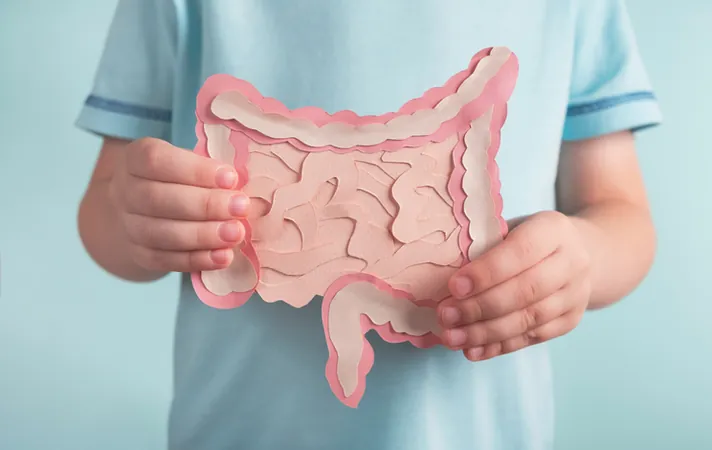
Revolutionary Probiotic L.rhamnosus Shows Promise in Combating Acute Diarrhea in Children
2024-11-19
Author: Benjamin
Revolutionary Probiotic L.rhamnosus Shows Promise in Combating Acute Diarrhea in Children
Recent research published in the journal *Frontiers in Nutrition* has unveiled groundbreaking findings regarding the LRa05 strain of Lacticaseibacillus rhamnosus, a probiotic marketed for its efficacy in treating diarrhea, constipation, and eczema. This strain is known for its unique ability to enhance the gut's microbiome by promoting beneficial bacteria that produce short-chain fatty acids (SCFA) while simultaneously suppressing harmful, pro-inflammatory bacteria.
In developing countries, diarrhea remains a leading cause of malnutrition, stunted growth, and even mortality among children. While traditional therapies exist, there is an increasing interest in the role of probiotics as adjunct treatments for acute diarrhea. Notably, the European Society for Pediatric Gastroenterology, Hepatology, and Nutrition (ESPGHN) recommends the use of clinically proven probiotic strains in effective doses for treating acute gastroenteritis in pediatric patients.
The LRa05 strain, specifically isolated from infant feces, has garnered attention for its impressive profile: it not only shows improved tolerance to acid and bile but also demonstrates potential immunomodulatory, antioxidant, and cholesterol-lowering properties, as evidenced in prior studies.
In a randomized controlled trial involving 60 children aged between 0 and 3 years suffering from diarrhea, researchers sought to rigorously assess the effectiveness of LRa05. Participants were divided into two groups: one received daily doses of LRa05 alongside standard therapies, while the control group received standard care with placebo sachets.
Remarkably, the results indicated that the children receiving LRa05 experienced a significant reduction in the duration and frequency of diarrhea. By the second day of treatment, noteworthy improvements were observed, culminating in a reduction in daily fecal frequency by 1.23 times compared to their counterparts by day five.
The study further highlighted a substantial shift in gut microbiota among those treated with LRa05, with increases in beneficial bacterial populations such as Actinobacteria and Bifidobacterium, including Bifidobacterium longum. Simultaneously, a decrease in harmful strains like Enterococcus faecium was noted.
This microbial transformation corresponded closely with the observed alleviation of symptoms. Furthermore, advanced functional gene analyses unveiled significant alterations in the relative abundance of 108 sub-functional genes in the gut microbiome post-treatment, particularly those associated with crucial biological pathways like DNA repair, metabolism, ribosome function, and amino acid synthesis.
The researchers celebrated the findings, concluding that the specific dosage and treatment duration of LRa05 remarkably enhanced the duration of diarrhea, improved stool consistency, and yielded beneficial effects on gut microbiota composition without any noted adverse effects in infants.
Nevertheless, the team underscored the need for additional research to identify the viral and bacterial pathogens responsible for inducing diarrhea in affected children. This information could yield further insights into the varied responses to LRa05 based on specific pathogens. They also caution that the short duration of the intervention—one week—limits current understanding of LRa05's potential long-term impact on children's health and their gut microbiome.
As this exciting research makes headlines, parents and caregivers are left wondering: Could this potent probiotic be a game-changer in the fight against childhood diarrhea? Stay tuned for more updates on this and related health breakthroughs!









 Brasil (PT)
Brasil (PT)
 Canada (EN)
Canada (EN)
 Chile (ES)
Chile (ES)
 España (ES)
España (ES)
 France (FR)
France (FR)
 Hong Kong (EN)
Hong Kong (EN)
 Italia (IT)
Italia (IT)
 日本 (JA)
日本 (JA)
 Magyarország (HU)
Magyarország (HU)
 Norge (NO)
Norge (NO)
 Polska (PL)
Polska (PL)
 Schweiz (DE)
Schweiz (DE)
 Singapore (EN)
Singapore (EN)
 Sverige (SV)
Sverige (SV)
 Suomi (FI)
Suomi (FI)
 Türkiye (TR)
Türkiye (TR)